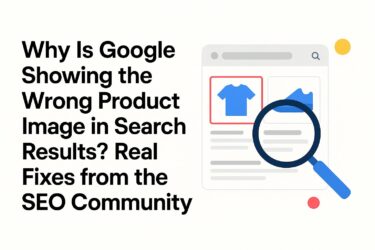Introduction
SEO (Search Engine Optimization) is often confused with digital marketing as a whole. Many businesses and even some marketing professionals assume that an SEO specialist is responsible for everything from paid ads to social media and email marketing. This misunderstanding leads to unrealistic job expectations, salary disparities, and inefficient marketing strategies.
In this article, we’ll break down the key differences between SEO and digital marketing, explain why the confusion exists, and explore how businesses can benefit from hiring dedicated SEO professionals.
SEO vs. Digital Marketing: Understanding the Distinction
To clarify the difference, let’s define each term:
- SEO (Search Engine Optimization) is the process of improving a website’s visibility in organic search engine results. It involves technical SEO, on-page optimization, link building, and content strategy.
- Digital Marketing is a broad term covering various online marketing strategies, including SEO, pay-per-click (PPC) advertising, social media marketing, content marketing, email campaigns, and conversion rate optimization.
Simply put, SEO is a subset of digital marketing. However, because SEO requires deep expertise in areas like technical audits, keyword research, and link building, it is a highly specialized field. Digital marketing professionals may use SEO as part of their strategy, but a true SEO expert focuses solely on organic search performance.
Why the Confusion Exists
Despite the clear differences, the lines between SEO and digital marketing remain blurred. Here’s why:
- Job Listings Mix SEO with Other Digital Marketing Tasks Many job descriptions list SEO alongside responsibilities like managing paid ads, running social media campaigns, and creating email marketing strategies. While some overlap is natural, bundling all these roles together ignores the depth of SEO expertise needed to drive sustainable organic growth.
- Businesses See SEO as Just “Another Marketing Channel” Many companies fail to recognize SEO as a long-term investment requiring a dedicated strategy. Instead, they lump it in with short-term tactics like PPC, expecting immediate results. This mindset leads to underinvestment in proper SEO and unrealistic performance expectations.
- SEO Isn’t Well Understood Outside the Industry Unlike PPC, where results are easily tracked through ad spend and conversions, SEO’s impact is harder to measure in the short term. Business owners and marketing managers without SEO knowledge often struggle to see its value beyond keyword rankings.
- Recruiters and Hiring Managers Lack SEO Knowledge Many hiring professionals don’t fully understand the role of SEO specialists. As a result, they look for candidates with a mix of SEO, PPC, social media, and content skills—leading to roles that are too broad and underpaid.
Read More: Should You Target the Same Keywords with SEO and PPC? It Depends—Here’s Why
How This Affects SEO Professionals
The lack of distinction between SEO and digital marketing leads to several challenges for SEO professionals:
1. Unrealistic Job Expectations
When employers assume SEO includes paid ads, social media, and email marketing, they expect specialists to manage all digital marketing activities. This results in unfocused job roles where SEO is deprioritized in favor of immediate, paid acquisition tactics.
2. Salary Discrepancies
Many SEO professionals are underpaid compared to PPC specialists or general digital marketers because businesses fail to recognize the expertise required. While PPC campaigns show quick ROI, SEO is a long-term investment—making it harder to justify higher salaries to uninformed decision-makers.
3. Career Growth Challenges
SEO professionals who work in mixed roles often struggle to develop deep expertise. Instead of focusing on technical SEO, content strategy, or link building, they get pulled into unrelated tasks, slowing career progression and limiting opportunities for specialization.
The Future of SEO as a Standalone Discipline
As AI and automation reshape the digital landscape, SEO is becoming even more technical and data-driven. To ensure SEO is recognized as a standalone discipline, businesses and professionals need to:
- Define Clear SEO Job Roles – Companies should differentiate between SEO specialists and general digital marketers when hiring, ensuring job descriptions focus on organic search optimization.
- Educate Businesses on SEO’s Value – SEO professionals must demonstrate how their work impacts business growth, from improving website visibility to increasing organic conversions.
- Invest in SEO as a Long-Term Strategy – Businesses should stop viewing SEO as a quick-win tactic and recognize it as a continuous process that drives sustainable results.
Conclusion
The confusion between SEO and digital marketing is an ongoing issue, leading to unrealistic job roles, lower salaries, and missed growth opportunities. SEO is a specialized field requiring dedicated expertise, and businesses that understand this distinction will see better results in the long run.
For SEO professionals, advocating for clear job roles and demonstrating measurable impact is key to securing fair compensation and career growth. As SEO continues to evolve, those who position themselves as specialists will be in the best position to succeed.
If your business is looking for expert SEO strategies tailored for long-term success, Algo Digital can help. Get in touch today to discuss how we can optimize your website’s organic performance!



